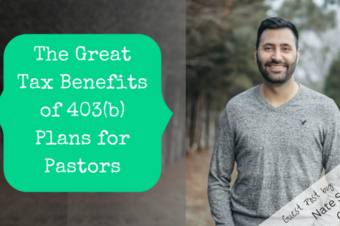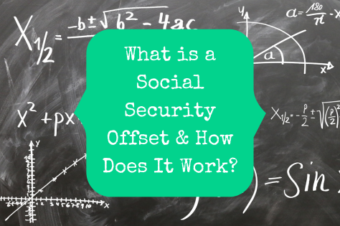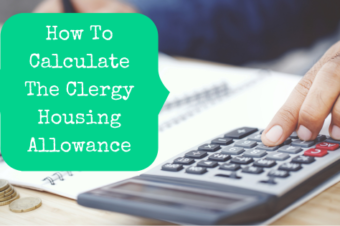Tax Deductible Expenses
Q: Are my vestments tax deductible?
A: Since the passage of the 2017 Tax Cuts & Jobs Act, unreimbursed business expenses are no longer tax-deductible. That would include your vestments. The only way to avoid paying taxes on those expenses would be for your church to set up an accountable reimbursement plan according to IRS rules.
Correcting Tax Errors
Q: I have been a pastor since 2010. I use TaxAct to file my taxes and only became aware this year that I am supposed to be paying self-employment tax. For the first time this year, TaxAct asked if I was clergy (I don’t think we’d been asked that in the past) and then asked if I had ever filed Form 4361. For my pastoral role, I don’t believe I’ve ever paid self-employment tax though I have never filled out form 4361. Am I in error? Do you know what steps I need to take to correct my errors?
A: When you first become a pastor, you have about 2 years in which you can submit a Form 4361 to the IRS and get it approved to opt out of Social Security and Medicare taxes. It sounds like you didn’t do this, in which case all of your pastoral income is subject to those taxes. Churches are not allowed to withhold or pay payroll taxes for pastors, so you have to pay them as if self-employed, with Schedule SE. It sounds like TaxAct was not set up to understand clergy taxes until this year. I’m sorry about that.
You should look at your old tax returns to see if Schedule SE was filed. If not, you likely did not pay those taxes. Also, set up an account at ssa.gov so that you can review the earnings history that the Social Security Administration (SSA) has for you. It will show any earnings that you paid Social Security taxes on. If you haven’t paid them, then it will show 0 for all of those years since 2010.
To go back and pay those taxes and get credit for that income with the SSA, you would need to file amended tax returns for all of those years and pay the taxes owed. There may be a statute of limitations where the IRS cannot go back and collect those, though if you do not pay them you won’t get credit for them with the SSA. I recommend that you consult a tax preparer who is familiar with clergy tax issues. Make sure they understand clergy issues because many tax preparers are just as clueless as TaxAct was and get pastors into trouble. At the end of this article, there is a list of tax preparers that my readers have recommended.
Documenting Pastoral Income
Q: What is the best way for a pastor of a small church to document his income from the church when he/she does not receive a w-2 or 1099?
A: There is no specified way that you have to document your income if you don’t receive a W-2 or 1099. Personally, I would use a spreadsheet and record the date it was received, who it was received from, the amount of income, and what it was received for. The goal is for you to have good enough records to file your tax returns accurately.
Tax Deductions For Pastors
Q: I pastor a very small (10-15) church and receive no salary. Are there any deductions I can take or special reductions? I receive Social Security and work part-time.
A: Volunteer work is not tax-deductible the way that cash donations are. The only deduction I can think of that you may be eligible for would be mileage for driving you do for your church. This article explains how to calculate and claim a tax deduction for volunteer mileage.
Donations To Pastors
Q: Do pastors have to pay taxes on donations outside their ministerial income? The money is not reported on a W-2 and not due to services. It is just donations from people that want to give to the pastor.
A: If the donation would be given regardless of whether or not the person was a pastor, then they are not taxable. However, if the donation is due to the fact that the person is a pastor, then it would be considered taxable income, even if it is not tied to a specific service. The article in that link goes into more detail. This article describes a recent court case that provides more detail on what the IRS looks at to determine if a gift is taxable.
Do you have a question? Feel free to ask!

















